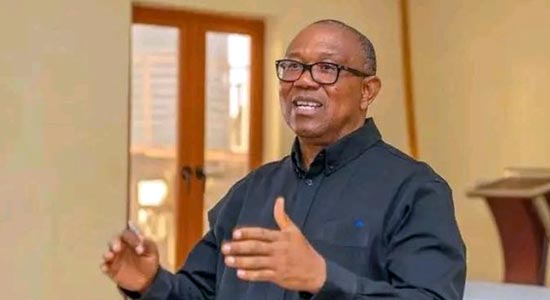
LABOUR Party’s presidential candidate in the 2023 general election, Peter Obi, has raised concerns over a recent comment by the Executive Secretary of the National Universities Commission’s (NUC), Chris Maiyaki, that producing more PhD holders could address the declining standards in Nigeria’s education system.
Obi in a post, on Friday, August 16, via his X handle, said Maiyaki solution overlooked several obstacles militating against the nation’s education system.

Maiyaki, on Tuesday, August 13, during the 2024 Registry Lecture at Babcock University, Ilishan, said there had been a decline in the nation’s university system over the past three decades.
The NUC boss also identified poor governance, academic corruption and inadequate funding as some of the critical issues affecting tertiary education in Nigeria.

According to Maiyaki, Nigerian graduates were once celebrated both nationally and globally, but the current system is marred with social vices, manpower shortages, economic pressures and incessant strikes.
“Some of these are also attributed to poor governance systems and also sometimes the broken family system.We have fallen short in procuring state-of-the-art museum modern current journals, books, and laboratory equipment in some cases.
“We need more PhDs; we need to stabilise; the system has suffered a lot of instability due to a combination of factors. We need sustained constant funding and so many, things to be done,” he said.
In response to his comments, Obi said while the NUC suggested an increase in PhD holders to address educational challenges, the process of obtaining a PhD in Nigeria had been fraught with obstacles.
He further expressed concerns over the existing disparities in the country’s educational and economic systems, highlighting that while a PhD holder earns around N1.8 million annually, it would take them over 85 years of saving to afford the N160 million SUVs provided to lawmakers from public funds.
He noted that the wage gap weakened the zeal to acquire more education and undermined the value of advanced degrees.
“According to the Executive Secretary, the situation requires the production of more PhD holders to address these issues. However, the Executive Secretary’s solution overlooks several obstacles, such as the unnecessarily prolonged time it takes to obtain a PhD in Nigeria and the frustrating disparity between wages and the level of academic attainment in the country.
“Though deeply troubling, I wonder how he expects an increase in PhD holders when it takes a minimum of 10 years of dedicated study after secondary school to earn a PhD.
“If fortunate, one might be employed as a Lecturer Grade 2 with a monthly salary of around ₦150,000, often paid irregularly, totaling N1,800,000 annually. In stark contrast, our legislators, whose required educational qualification is merely a secondary school certificate, receive a monthly salary of ₦21 million, which is more than 10 years salary of a PhD holder.
Credit: The Nigeria Lawyer
